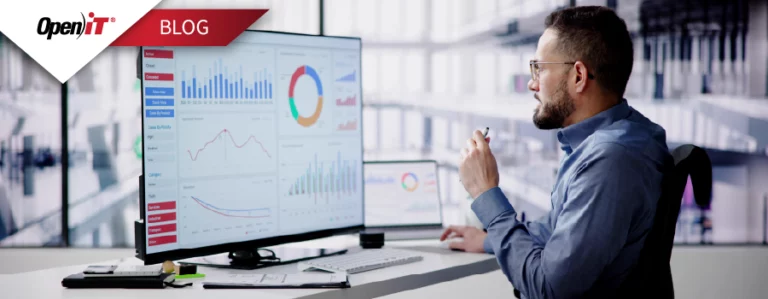The U.S. government’s transition to cloud-based infrastructure and applications has accelerated significantly. However, a recent report by the U.S. Government Accountability Office (GAO) highlights significant challenges arising from restrictive software licensing practices imposed by vendors.
These restrictions prevent federal agencies from fully leveraging cloud-based solutions, leading to unnecessary cost overruns, reduced operational efficiency, and suboptimal resource utilization. Without a structured approach to mitigating these constraints, government agencies risk further increased costs and operational inefficiencies.
The Cost of Restrictive Licensing on Federal Cloud Investments
Federal agencies are projected to allocate $8.3 billion to cloud computing including related software licensing expenses by 2025. Despite this substantial spend on such high-risk investments, many agencies encounter persistent obstacles in optimizing their cloud adoption strategies.
For years, effective cloud migration and utilization have remained an unrealized priority due to vendor-imposed licensing constraints. The GAO identified that restrictive software licensing has adversely affected multiple federal agencies, including the Department of Justice (DOJ), Department of Transportation (DOT), Department of Veterans Affairs (VA), National Aeronautics and Space Administration (NASA), and Social Security Administration (SSA).
The GAO outlined six primary restrictive software licensing practices contributing to inefficiencies in federal cloud adoption:
- License Repurchase Requirement: Vendors mandate agencies to repurchase existing software licenses for cloud deployment, increasing total cost of ownership.
- Cross-Cloud Surcharge: Additional fees are imposed when software is deployed on a non-vendor cloud infrastructure.
- Cloud Migration Fees: Agencies incur excessive conversion fees when transitioning on-premises licenses to cloud environments.
- Vendor-Preferred Cloud Infrastructure: Software vendors require or incentivize agencies to deploy applications exclusively within the vendor’s proprietary cloud ecosystem, thereby reinforcing vendor lock-in.
- Data Repatriation Costs: Agencies must pay fees to regain access to their own data upon contract termination, restricting data portability.
- Interoperability Restrictions: On-premises private cloud vendors prohibit third-party software integration, further reinforcing vendor dependency.
A Triple Gap of Guidance, Governance, and Expertise
Despite the U.S. government’s aggressive push toward cloud adoption, many federal agencies operate without a structured framework to identify, analyze, and proactively mitigate restrictive software licensing practices.
For years, effective cloud migration and utilization have remained an unrealized priority due to vendor-imposed licensing constraints.
Lack of Assigned Responsibility
A critical issue highlighted by the Government Accountability Office (GAO) is that none of the reviewed agencies had fully assigned responsibility for managing restrictive licensing practices. This absence of oversight leads to:
- Uncoordinated software procurement and contract negotiations, increasing the likelihood of agencies accepting unfavorable terms.
- Inconsistent policy enforcement, creating uneven exposure to vendor-imposed restrictions across different departments.
- Missed opportunities for proactive license renegotiation, forcing agencies into costly renewals without fully exploring alternative licensing structures.
Restrictive Licensing Management Not Prioritized
Many agencies fail to prioritize the management of restrictive licensing practices, often due to:
- Cloud migration efforts focusing primarily on infrastructure modernization rather than optimizing licensing agreements.
- Limited awareness of financial and operational risks associated with restrictive vendor practices.
- Lack of specialized tools and expertise within IT procurement teams to evaluate licensing constraints at a granular level.
As a result, agencies adopt a reactive rather than proactive approach, often identifying restrictive licensing issues only when budgetary overruns or operational inefficiencies arise.
Shortage of Qualified IT Personnel
Further exacerbating the issue is the growing shortage of skilled IT personnel capable of managing cloud-based software assets effectively. Many agencies do not have software asset managers and licensing specialists with the expertise to:
- Interpret complex licensing agreements and uncover hidden restrictions.
- Conduct granular usage analysis to determine optimal licensing structures.
- Ensure compliance with federal software procurement policies while securing flexible, cost-efficient vendor terms.
Without these specialized skills, agencies rely on manual, fragmented processes for tracking and optimizing software licenses, heightening the risk of non-compliance, operational inefficiencies, and unnecessary expenditures.
A Two-Pronged Approach: Software License Management and SAM Managed Services
As a GSA-certified provider of Software License Management (SLM) solutions and SAM Managed Services, Open iT helps federal agencies address restrictive software licensing and regain control over cloud-based expenditures.
Software License Management: Data-Driven Optimization
SLM empowers agencies with granular, real-time insights into software license utilization, enabling them to:
- Analyze actual usage patterns to differentiate between critical and underutilized licenses.
- Identify and eliminate redundant or excessive licenses to prevent unnecessary expenditures.
- Optimize procurement strategies by aligning license purchases with actual demand rather than overestimates.
- Track compliance with licensing agreements to avoid unexpected fees or penalties for overuse.
- Support cost-efficient cloud migration planning by determining which licenses should be transitioned, consolidated, or retired.
By leveraging Open iT’s advanced SLM solutions, agencies can maximize the value of their existing software investments while reducing wasteful spending on restrictive licensing models.
SAM Managed Services: Continuous Compliance and Vendor Negotiation Expertise
While SLM provides agencies with data-driven decision-making tools, SAM managed services offer the ongoing expertise and support needed to enforce policies, manage vendor relationships, and ensure compliance. Key benefits include:
- Proactive license governance: Continuous monitoring of software license agreements to identify potential vendor-imposed restrictions early.
- Vendor contract analysis and negotiation support: Ensuring that agencies negotiate flexible, cost-effective licensing terms and avoid vendor lock-in.
- Audit readiness and risk mitigation: Assisting agencies in preparing for vendor audits and reducing exposure to compliance violations.
- Automated policy enforcement: Implementing best practices in software asset lifecycle management, including license renewals, terminations, and reallocations.
- Strategic cost control and forecasting: Providing predictive analytics to help agencies anticipate software spending trends and optimize long-term procurement strategies.
Break Free From Restrictive Software Licensing
Without clear accountability, structured policies, and specialized expertise, federal agencies will remain vulnerable to the financial and operational pitfalls of restrictive software licensing. Overcoming these challenges demands a systematic, data-driven approach—one that identifies, analyzes, and mitigates restrictive practices while ensuring compliance and cost efficiency.
Contact Open iT today and discover how a combined framework of software license management and SAM Managed Services, can help your agency overcome vendor-imposed constraints, optimize cloud investments, and build a sustainable, future-ready IT infrastructure.






